By David Davidian
The history of the Armenians, characterized by persecution and displacement, has profoundly impacted this forlorn people and their collective experience. Much like Belgium, Armenia was a battleground between forces of East and West. But unlike Belgium, Armenia could never stand wholly on its own for long, relying on the ‘benevolence’ of the powerful, from ancient Iran to Russian ‘salvation’ from Ottoman rule. Armenian literature, poetry, and songs are generally somber and melancholy, and characterized by despairing themes. It should not be surprising that Armenians adopted Christianity as a national religion, hoping for divine deliverance.
The 1915 Turkish Genocide of the Armenians was so profound that it may have led to collective epigenetic changes in survivors and their descendants. Yet no studies appear dedicated to this phenomenon in the Armenian case. Experiencing horrific trauma can result in epigenetic changes to a person’s genes, which their offspring may inherit. This change does not involve a genetic mutation but modifies how genes are expressed. Any potential epigenetic expression would be complex and multifactorial, influenced by many environmental factors. The difference between Soviet Armenian and diasporan environments may account for different epigenetic expressions. Of the possible epigenetic cases, the most studied are Jewish Nazi Holocaust survivors, yet this area of research is still in its infancy. One might note that Holocaust survivors had an outlet with a large population of Jews outside of the trauma region; their synthesis helped create the state of Israel with the direct orchestration of powers such as England and the US. Armenians had no such equivalent, and, extant today, many survivor descendants remain trapped in a possible epigenetic prison resulting in a collective real-world political paralysis characterized by an inability to thrive politically despite having outward characteristics of a closely-knit nation.
During the late nineteenth and early twentieth centuries, Armenians dominated commerce in the eastern regions of Anatolia. In Tsarist Russian Tiflis (present-day Georgia’s Tbilisi), Armenians constituted about two-thirds of the population and most of its mayors up to the Soviet era. Armenian industrialists competed against prominent names such as the Nobels and Rothschilds for control of Caspian oil. One of the wealthiest people of the twentieth century, Calouste Gulbenkian, also known as “Mr. Five Percent,” was the first to exploit Iraqi oil. Armenians had the highest percentage of successful individuals of any ethnic group spanning central Anatolia, the Northern Caucasus, and the Caspian Sea region.
Note the term individuals. The violent extermination of the Armenians not only formed the basis of the Modern Turkish Republic, jump-started by the seizure of Armenian capital and property, but it removed the major economic competitor to European powers who coveting inroads into this region.
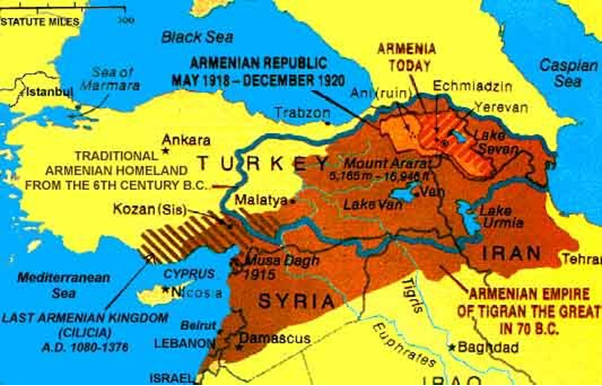

Armenians lacked self-governance since the fall of their last kingdom in 1375, coming barely a hundred years after the devastating Mongol invasion of Armenia and followed by the Ottoman conquest. For over half a millennium, Armenians were ruled over by others, deprived of continuity in self-government, collective goals, and diplomatic traditions. Armenians were forced farther into the mountains, surviving only as families and small groups. As a result of generations constrained by parochial politics and manifestations of selfishness, little dynamic existed to engender the formation of a collective or larger society. This condition was magnified by Armenians being dhimmi, second-class citizens defined as religious minorities under Ottoman Turkish rule. This is perhaps one reason why newly established Armenian diaspora communities built churches.
What remained of Armenia after WWI was forcibly incorporated into the Soviet Union and populated by a plurality of orphan genocide survivors. An all too common Armenian last name is Harutyunian, (resurrection), given to thousands of orphans too young and traumatized to remember their last names. The Soviet Armenian contribution to WWII was the mobilization of over 600,000 men, half of them casualties. Both numbers were among the highest, percentage-wise of any ethnic group or of any Soviet republic including Russia.
There was a hope that such a contribution would incentivize the Soviet Union to annex prior Armenian-inhabited lands along the Turkish-Soviet borders. The international community dashed such hopes. Soviet policies of restricting national expression went as far as to forbid Armenians from writing their genocide survival memoirs. This complete lack of such memoirs contrasts with the multitude of memoirs written by Armenian diaspora survivors. This unredressed trauma was so deep that it actively manifested itself two generations later. In 1965, demonstrations took place in the Soviet Armenian capital of Yerevan on the fiftieth anniversary of the genocide, demanding its recognition. The result was Moscow granting the construction of a genocide memorial a few years later. Such an act was unprecedented during Soviet times.
The 1988 earthquake in northern Armenia, killing over 25,000 people, coincided with the start of the First Karabakh War between Armenian and Azerbaijan forces, with tens of thousands of Armenian fatalities. Armenians across the breadth of Azerbaijan were violently expelled, with nearly a quarter million from the Azerbaijani capital, Baku. As a result of the Second Karabakh War in 2020, Armenians lost sovereignty over Nagorno-Karabakh and surrounding territory. Azerbaijan currently occupies over 215 sq. km of internationally recognized sovereign Armenian land. There has not been a trauma-free generation of Armenians in over a century.
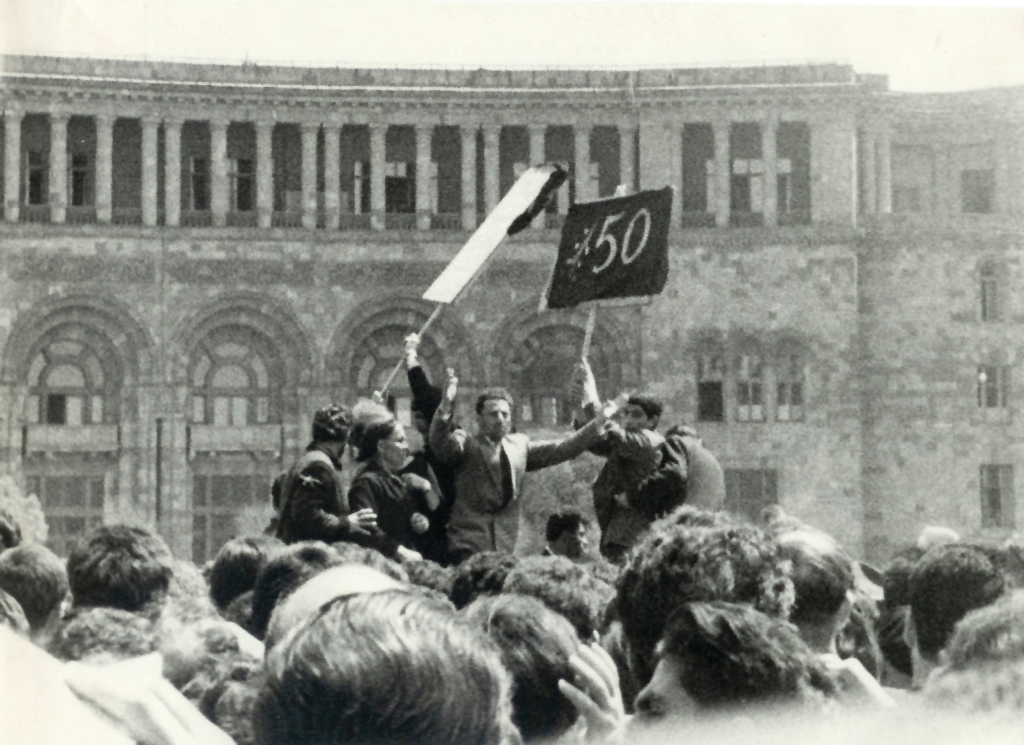

From the start of organized corruption, accelerated during the Brezhnev years and after, Armenians again began exhibiting individualistic instincts, viewing governing bodies and institutions as targets for systematic corruption. To be fair, such corruption was not unique to ethnic Armenians within the Soviet Union; greed is universal. With the fall of the Soviet Union, corruption in post-Soviet republics transitioned from being at the expense of distant Moscow to the detriment of fellow citizens in the post-Soviet republics. Practices such as bribery, extortion, and nepotism were characterized by prioritizing private interests over public ones, with a flagrant disregard for any adverse consequences suffered by the public. Amassing individual fortunes was the societal ethos that flourished in the absence of normal controls on civilized society. An unwritten policy of post-Soviet Armenia was the deprecation of simple national expression or patriotic feeling, a convenient continuation of Soviet policies. Instead, what pervaded was a culture of serving elites who derided transparency and accountability, in spite of having been ‘democratically’ elected.
Lacking any sociological or psychological studies, one is left to hypothesize that a cultural ethos of individual interests may be the fallout of an epigenetic expression, manifesting a superiority complex that in reality is hiding a deep-seated collective inferiority. Conspicuous consumption and oligarch-envy are symptoms of this and is evidenced in social media commentary. The collective behavior belies the presence of the necessary requirements to build and sustain a successful modern nation-state.
Sadly, instead of encouraging an ethos to embrace the values needed to build a secure state, there is a predominant desire for individual wealth with state-building and existential security not equally valued, thus not coequally pursued. Such endeavors must not be mutually exclusive. The following is a partial listing of outcomes that have been disastrous for the Armenian state and people. They are the result of individualistic thinking and aspiration for selfish pecuniary gain and power, which has produced a strategic crisis in the Republic of Armenia and in Nagorno-Karabakh.
- Not having the best and brightest local Armenians in positions of strategic importance while excluding diasporan experts, negating the creation of a leadership culture, with individual interests trumping competence. The result is the Armenian government is characterized as a kakistocracy.
- A never-ending process of selling off of Armenian strategic infrastructure to foreign interests following the wholesale theft during the immediate post-Soviet period.
- Not having established a competent diplomatic corps serving long-term goals.
- Not having established a state-of-the-art state intelligence system.
- Not engaging in modern state public relations and counter-intelligence.
- Not encouraging a disciplined educational system serving both national, economic, and individual goals.
- Not creating a military serving the national defense that does not rely on anachronistic leadership.
- Not having a police system that protects the individual rather than serve the whims of the ruling class.
- Not maintaining a judicial system that serves the state constitution, not those who appointed the cadre of judges.
- Having a government that views strategic legislation as nothing more than a temporal transaction.
- Never having creating a society demanding public accountability and responsibility by government bodies.
- Having encouraged a lack of utility in national cultural pride.
- No end to economic determinism devastating the environment, public safety, food, health, and consumer safety, etc., contrary to the mandate of a constitutional republic.
To counter these self-created depravities requires the adoption of a clear grand national strategy. Nation-states, like individuals, can only achieve goals if they are clearly articulated and supported by plans to attain them. Neither states nor individuals can achieve long-term goals by making haphazard, impulsive, transactional decisions, especially in the modern era of accelerated change. Not all nation-states have grand national strategies, but those who expect to survive the rest of this century without being culturally and politically dominated do. While the items listed above define conditions in many nation-states, for Armenia, they represent an existential threat given its perilous geopolitical status. If not remedied, a line may be crossed where aspects of Armenian state sovereignty will be on the auction block — if not already. Armenia could disappear forever as other nations, societies, and cultures have.
Implementing a grand strategy where one never existed, and countering the interests of those who have comfortably established themselves as part of the ruling elite, is an enormous challenge. History is replete with forces that have opposed the status quo, ranging from violent revolutions to quiet referendums. But without a comprehensive national strategy, true reform is effectively impossible to achieve.
Should Armenia fail to realize that reform and secure its sovereignty, society, culture, and legacy of historical achievement, it will suffer at the hands of the global powers with agendas detrimental to Armenia, and, Armenia will yield to its past.
Some will find this analysis imprudent for a public forum. Yet there are forces internationally that understand Armenians better than themselves and who are taking advantage of the shortcomings within the Armenian ethos.
Author: David Davidian (Lecturer at the American University of Armenia. He has spent over a decade in technical intelligence analysis at major high technology firms. He resides in Yerevan, Armenia). A collection of his work can be seen at shadowdiplomat.com



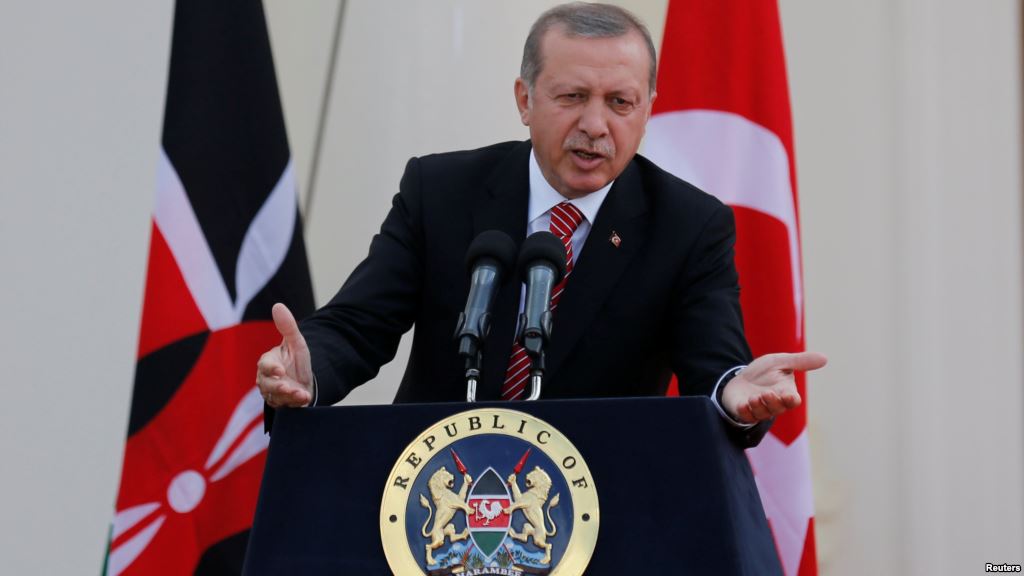
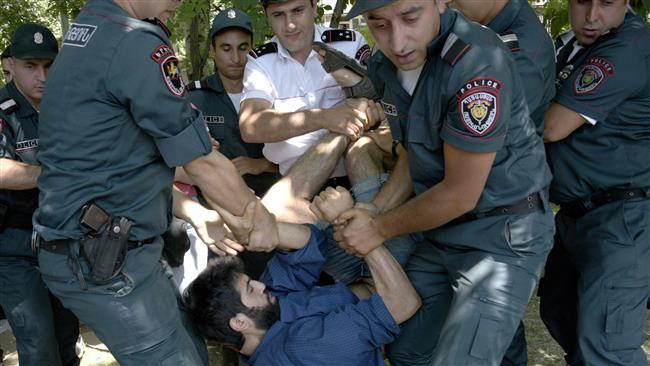
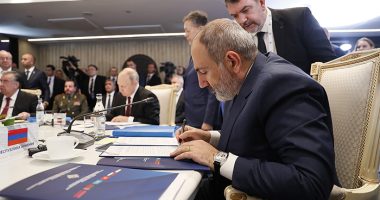





2 comments
The only thing that has kept Armenia intact until now is UNITY. America is beginning to decay for similar reasons and will eventually fall to those who worship the divide and conquer mentality. UNITE and FIGHT!
Armenia needs to develop battlefield Neutron weapons. Only that way it will secure its future. Also, invest some money into population support. Such as unwed mothers homes, adoption services, coupled with the forbidding abortion. I used to be for free choice, but Armenian women use abortion like birth control. And all for the cost of raising a baby. Babies should not cost, on the contrary, babies should be subsidized generously. All the money that went int purchasing all those tanks, and for what. Only when we become strong like Israel, we can ten demand and get the lands back. All of them.